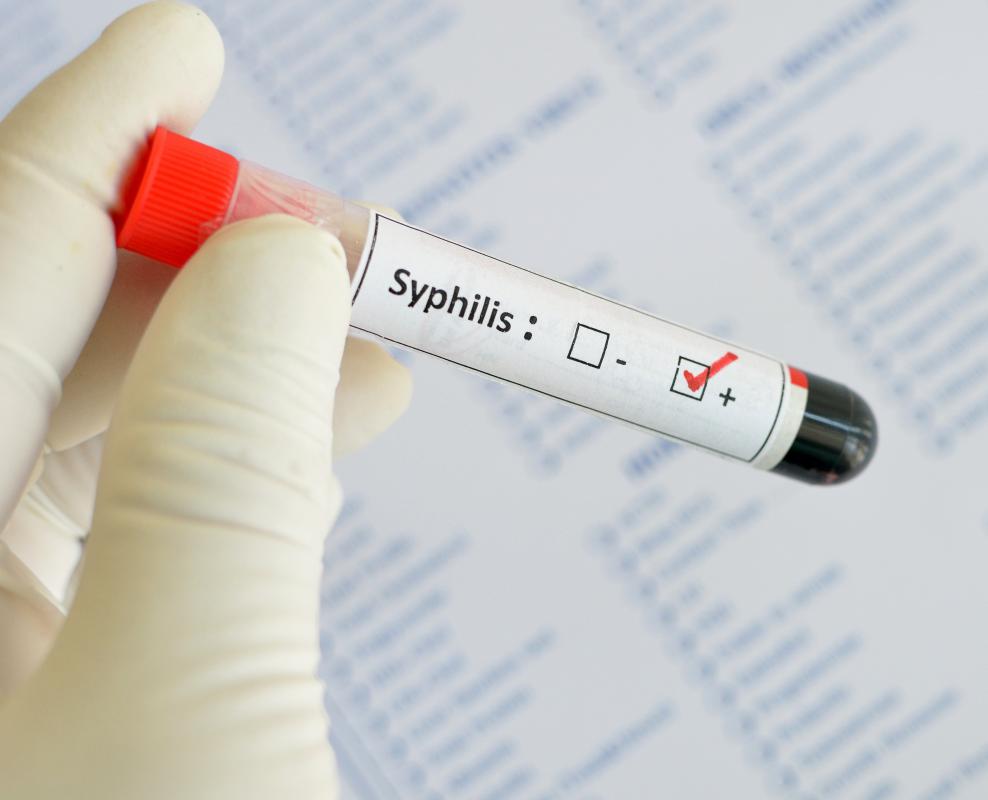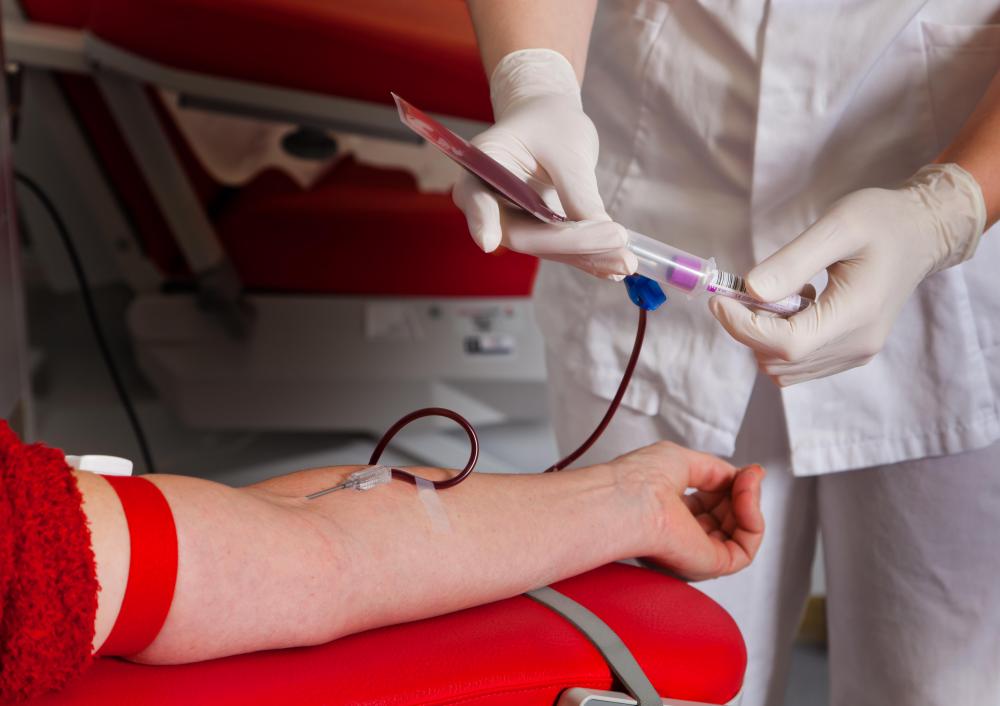At WiseGEEK, we're committed to delivering accurate, trustworthy information. Our expert-authored content is rigorously fact-checked and sourced from credible authorities. Discover how we uphold the highest standards in providing you with reliable knowledge.
What Is the Connection between HIV and Syphilis?
There are numerous connections between HIV and syphilis. Two of the most important are that people are at increased physical risk for both receiving and transmitting the HIV virus if they have an untreated case of syphilis. The very behavior that might result in contraction of syphilis elevates this risk even more. People who may be vulnerable to one sexually transmitted disease are vulnerable to them all, usually because of their behavioral approach to sexual relations.
In the early stages of syphilis infection, people develop sores or lesions in, on, or around the genitals. These open sores are one way HIV infected fluids can more easily enter the bloodstream. Thus, one of the connections between HIV and syphilis is that the expression of syphilis disrupts the barrier to the bloodstream provided by unbroken skin. This means if a person infected with syphilis has sexual relations with a person infected with HIV, the likelihood of getting HIV significantly increases.

The link between HIV and syphilis also works in the reverse. Since HIV is passed through body fluids, contact with the open sores of a person who has syphilis and HIV elevates risk of acquiring both illnesses. The presence of open sores makes transmission of HIV more likely. Additionally, when people have syphilis and HIV, syphilis may result in a higher amount of HIV virus being present in all bodily fluids like blood and semen. So the person with both viruses is more contagious with HIV than usual from two perspectives.

Experts on sexually transmitted diseases also point out that the risky behavior involved in contracting syphilis is the same as risky behavior that might result in getting viruses like HIV. This means that another connection between HIV and syphilis is they are both more likely when people are not practicing safer sex. Anyone with syphilis is automatically suspected of having HIV. When pregnant women have tests for syphilis, a positive test would be followed by HIV testing. Anyone testing positive for any type of sexually transmitted disease might be counseled to also take a test for HIV to rule out presence of the virus.

Given the different links between HIV and syphilis, it’s easy to establish some guidelines on how to handle syphilis infection. First, it should be treated, and people should abstain from sexual intercourse until the condition is fully resolved. The greater likelihood of HIV and syphilis being present together suggests that a positive diagnosis of syphilis should be followed by HIV testing. Those people who have contracted either illness, or who have discussed at-risk sexual behavior also need counseling, education, and encouragement to adopt safer sex practices in the future.
AS FEATURED ON:
AS FEATURED ON:















Discussion Comments
Our sexual habits usually develop in our teen years when we are becoming sexual beings and trying to figure out what these new feeling, emotions and urges are all about. We have all of these new feeling and body changes, and there is no manual to take us through the process.
This is the time when adults and health organizations need to educate young people about sex, and the risk of sexually transmitted diseases, so that they will be less likely to personally experience HIV symptoms or the effects of STDs like syphilis.
I read somewhere that nearly half of the new cases of STDs each year take place in teenagers and young people between the ages of 15-24. Personally, I was surprised at the numbers of young people who are exposed to the HIV virus when we know so much about AIDS causes and the effects of this disease.
@Feryll - I agree that there is some risk whenever you have sex, but you can reduce your chances of getting a sexually transmitted disease greatly by simply using a condom and by simply limiting your number of sex partners, and by choosing partners who are also taking the same precautions.
I don't know the statistics, but I agree with the article that there is a measurable connection between HIV incidence and an STD like syphilis.
In this article it talks about how experts say that the risky sexual behavior associated with a person getting syphilis is the same type of risky behavior that can lead to a person getting HIV. Sometimes the experts, whoever they may be, make it sound like anyone who gets a sexually transmitted disease is sexually deviant or sexually irresponsible.
Yes, it is definitely true that in some cases people make less than smart decisions in sexual situations, but sex of any kind involves some risk, so anyone who is having sex is taking a risk.
Post your comments